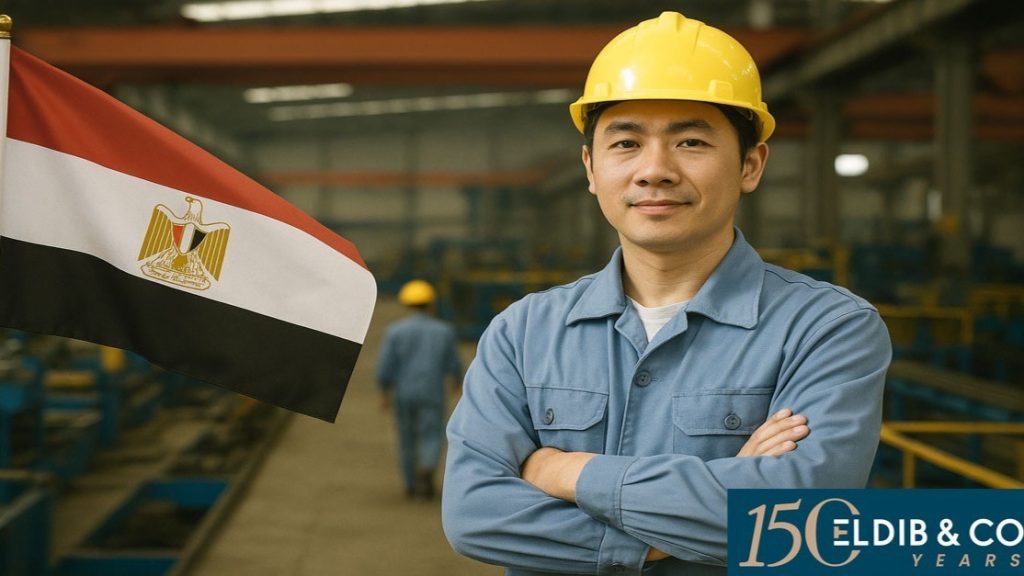
As global trade tensions escalate and US tariffs continue to pressure Chinese manufacturing, a surprising solution has emerged on the western edge of the Middle East: Egypt.
Over the past few years, a steady wave of Chinese factories has been relocating operations to Egyptian soil. This is not just about finding cheaper labor or better logistics. It is a strategic move to stay afloat in a volatile global trade environment.
Egypt Rising as a New Hub for Chinese Industry
With the US maintaining high tariffs on a wide range of Chinese goods, many firms that previously diversified into Southeast Asia are now facing new challenges. In April, the United States introduced “reciprocal” tariffs of up to 49 percent on countries like Vietnam, Thailand, and Cambodia.
Egypt, however, has largely remained exempt from these heightened measures. Its exports to the US were only subjected to a baseline duty of 10 percent. Combined with its location at the crossroads of Asia, Africa, and Europe, Egypt has become an increasingly attractive base of operations. Over 2,500 Chinese companies are now active in the country, including major players like ZTE, OPPO, and GAC Motor.
A Wave of New Investment
In the first four months of 2025, Egypt’s clothing exports exceeded 1 billion US dollars, marking a 22 percent year-on-year increase. Chinese textile leaders such as Zhejiang Cady Industry are among the firms leading this push. Their newly opened 100 million US dollar factory in Egypt is expected to generate more than 4,500 jobs.
The Suez Canal Economic Zone is at the center of this surge. Egyptian industry groups announced in March alone 10 new Chinese-led investment deals worth 60 million US dollars, mostly focused on industrial projects.
Why Egypt Appeals to Chinese Manufacturers
Factory owners like Huang Ping, who moved operations from China to Egypt in 2018, highlight the country’s combination of low labor costs, political stability, and a balanced foreign policy.
“I have assessed investment conditions in more than 60 countries,” said Huang. “Egypt is among the few where you find security, friendliness toward investors, and no anti-Asian sentiment.”
Egypt’s strategic diplomacy is another key factor. Its strong ties with both China and the United States make it less likely to face retaliatory tariffs, unlike countries with more polarized foreign policies.
Opportunities and Growing Pains
The rapid influx of Chinese companies has created pressure on local infrastructure. Industrial land prices in areas like Ismailia and the Suez Zone have more than doubled in six months. Factory construction is moving fast, and civil engineers report an urgent demand for facilities.
At the same time, local and early Chinese entrants now face rising competition from industry giants like Midea, Hisense, and Haier. This has placed pressure on margins for smaller manufacturers.
Despite these challenges, the trend remains clear. For many exporters, Egypt has become not just an alternative but a lifeline.
Why Eldib & Co is the Legal Partner of Choice for Chinese Companies in Egypt
As Chinese businesses expand their footprint in Egypt, strong legal support is essential. Eldib & Co is proud to be the only Egyptian law firm with both Chinese-speaking lawyers and a fully operational office in China.
This year, we celebrate 150 years of continuous legal service since our founding in 1875. Throughout our history, we have acted as a trusted partner for international clients doing business across North Africa and the Middle East.
We are uniquely positioned to assist:
- Chinese companies entering the Egyptian market
- Egyptian companies expanding to China
- Investors seeking factory establishment, land acquisition, and licensing
- Clients requiring assistance with compliance, corporate governance, and IP protection
Whether you are just starting to explore opportunities or are ready to launch operations, Eldib & Co is here to guide you with bilingual support, commercial awareness, and legal excellence.
By Mohamed Eldib, Partner and Head of Corporate & Commercial.




